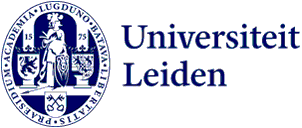
Statistical literacy: ‘It’s about how we teach, not what we can teach’
Assistant Professor Lucie Zicha at Leiden University College (LUC) in The Hague is on a mission to bring statistical literacy to all undergraduate students.
Earlier this year, Zicha was awarded a €50,000 Comenius grant. We caught up with her to learn more about her innovative method to teach students how to use replication to strengthen their understanding of quantitative research.
Why is statistical literacy so important?
Lucie Zicha: ‘Teaching statistics and quantitative reasoning is personal to me. I grew up under communism, where statistics was taught in the absence of context. Without an emphasis on reasoning, it was used purely as a mathematical tool aimed more at control than any genuine pursuit of understanding. I think we are all quite familiar with how that approach turned out for the integrity of statistical information in the Soviet Bloc. Back then, statistics remained firmly in the hands of the propaganda apparatus, and much damage was done.
'Teaching statistics and quantitative reasoning is personal to me. I grew up under communism, where statistics was taught in the absence of context.'
Today, it is just as important to remember that you can’t interpret statistical data and results without context. Students must be able to understand and fairly evaluate the merits of scientific research design to determine what is reasonable to conclude and disseminate in public. What’s more, the growing emphasis on evidence-based policies and best practices in virtually all institutions expands statistical and scientific education from predominantly in the domain of natural sciences to all university students.’

How does your project help?
Lucie Zicha: ‘The new grant project is a crucial extension of a pilot I developed at LUC over the past five years. I am creating educational tools and approaches to teach statistical literacy to undergraduate students coming from diverse mathematical backgrounds. I have found that a very effective way to do this is by letting students replicate parts of existing studies. To make this more accessible, I am building a searchable database with links to existing replication datasets and published peer-reviewed articles.
'I was (...) struck by the enormous growth in the students’ understanding of how science works in practice.'
Imagine you are a student or instructor who wants to replicate a portion of a study that employs simple linear regression or to calculate simple averages. You could search our database by the type of statistical technique used, for example. This will present you with a list of selected studies that employ such a technique. This solution saves students a lot of time and makes replication less intimidating for those who already feel uneasy.
Although some have been skeptical about having undergraduate students do replication of published quantitative analyses, my classroom pilot has shown that it can be a very successful approach. Participating students have provided a lot of positive feedback and have created excellent replications. I was, however, most struck by the enormous growth in the students’ understanding of how science works in practice. Replication gives them a hands-on unique opportunity to learn how scientists make decisions and how that in turn affects their research findings. I became convinced that it’s really about how we teach, not what we can teach.’
What’s next?
Lucie Zicha: ‘Thanks to the grant I have now been able to start transforming the project into a more coherent part of quantitative methods teaching at LUC. It also means the teaching method can be adopted by instructors outside of LUC. In the long-term, I intend to use the project results to also bring the replication method to first-year students at LUC and perhaps even to senior high school students.
We are currently in the initial stages of developing our database and resources. Over time, the idea is to grow the database gradually into a crowd-sourced database. Of course, I am also interested in learning precisely how teaching replication improves statistical literacy beyond the anecdotal observations I made so far. Studying this more systematically will be the focus of the second stage of the project.
I hope the database will be up and running in the spring of 2024. We also plan to host workshops introducing the teaching of replication in undergraduate classrooms using our new database. The workshops will be open to all instructors interested in this topic.'
Interested in joining a Teaching Statistics Through Replication workshop? Please email l.zicha@luc.leidenuniv.nl.
Educational innovation in The Hague
This project takes place in the context of Leiden University’s unique Liberal Arts and Sciences programme, delivered through Leiden University College at the Faculty of Governance and Global Affairs in The Hague. The international programme’s challenging, interdisciplinary curriculum focuses on the study of some of the greatest challenges of our time. Education at Leiden University College takes place in interactive small-scale classes, focused on discussion and debate. First- and second-year students live on-campus and learn together in a close-knit international community.
More about Leiden University College